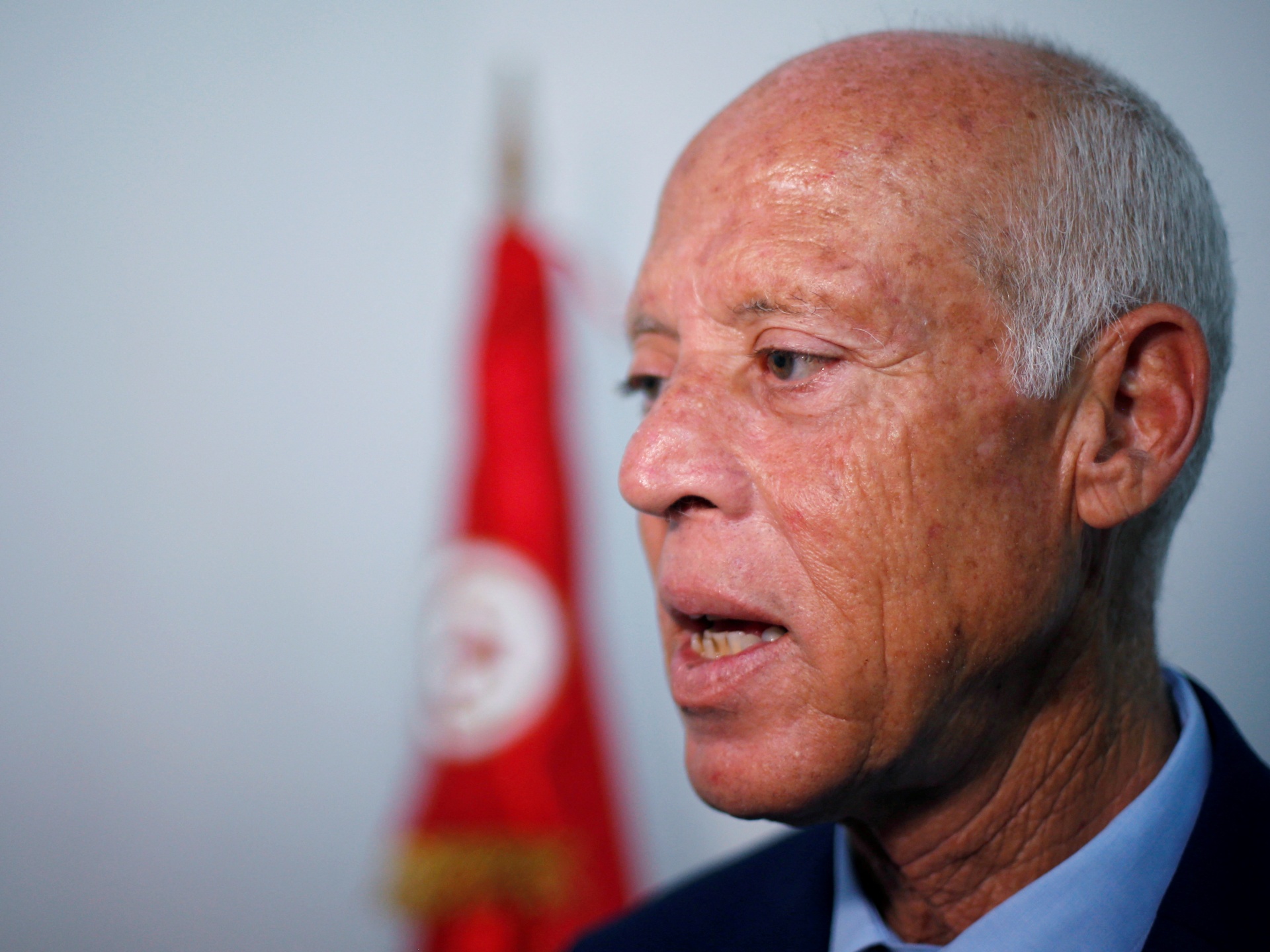Rights activists criticise the president’s comments, say they are intended to ‘create an imaginary enemy’.
His comments during a meeting of the National Security Council on Tuesday followed the arrests of dozens of migrants this month in a crackdown.
“The undeclared goal of the successive waves of illegal immigration is to consider Tunisia a purely African country that has no affiliation to the Arab and Islamic nations,” Saied said, adding that the influx of irregular migrants must quickly be ended.
He added that unnamed parties had over the past decade settled African migrants in Tunisia in return for money, according to comments published by the presidency online.
Activists, who had this week already condemned what they call hate speech directed at African migrants, said the president’s comments were racist.
“It is a racist approach just like the campaigns in Europe,” Romdhane Ben Amor, spokesperson for the Tunisian Forum for Economic and Social Rights, was quoted as saying by Reuters news agency.
“The presidential campaign aims to create an imaginary enemy for Tunisians to distract them from their basic problems.”
Heavily indebted Tunisia is in the grip of a long-running economic crisis, with thousands of trade unionists last week protesting across the country over worsening economic woes and the arrest of a top union official.
The president is also engaged in an escalating confrontation with critics who accuse him of a coup for shutting down parliament and seizing most powers in 2021, and police have this month detained many leading opposition figures.
Saied has said his actions were legal and necessary to save Tunisia from chaos.
Tunisia is a major transit point for migrants and refugees seeking to cross the Mediterranean to Europe, including growing numbers of both Tunisians and people from other African countries.
Black Tunisians have a long history in the country, making up 10 percent to 15 percent of the population, and rights groups have said the country has not done enough to address racism.
